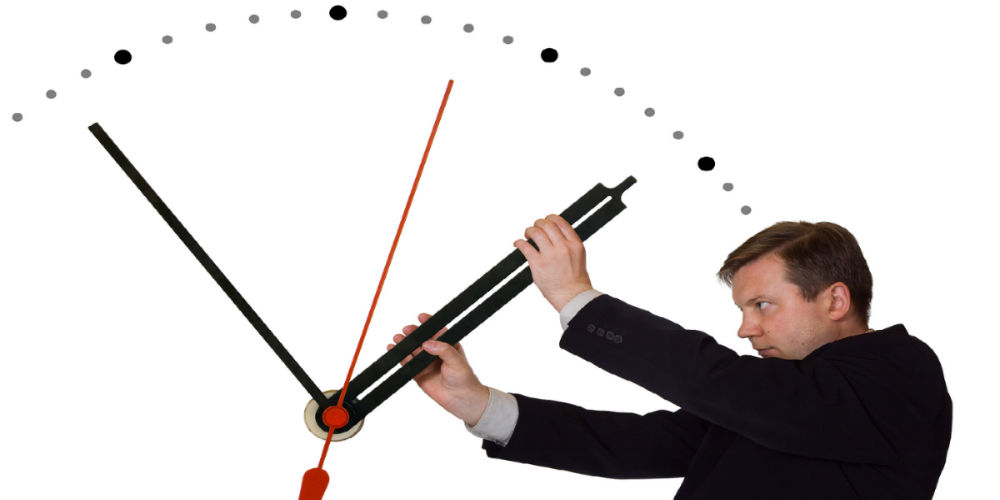Discovering that you have the time you need
Time is what we want most, but what we use worst. ~ William Penn

The Unplugged Challenge
Recently, I had the privilege of speaking at the CUES ExecuNet (TM) event in Jackson Hole, Wyoming. While there, my wife and I decided to take a few extra days to see the area. After a long summer packed full with too much to do, I made a decision to make it a real vacation…no phone calls, no email, and no writing for an entire week.
It was hard to imagine, but not impossible to implement…
I created a few simple ground rules and communicated with everyone to set the stage. I let clients know I would not be responding to e-mail, set up an auto-response vacation message, put a few filters in place to direct messages to relevant folders, and gave myself 15 minutes per day to process my inbox. The review process meant only responding to emergency client emails, deleting any emails of blog posts or advice, and putting personal messages on hold until later.
7 Things Learned in 7 Days (Mostly) Off the Grid
Some of what I learned during my little experiment surprised me (and some didn’t):
- Nobody ever calls me (and that’s OK).
- Most of my email doesn’t really matter and isn’t very urgent (or important).
- I can survive processing my email once a day.
- I subscribe to a lot of stuff I don’t need to read.
- People will respect your boundaries if you keep them informed (including clients).
- My expectations are out of line with my reality—I tend to think I need to know it all, fear missing a key piece of info, and try to read everything; I really don’t need to do that.
- Nothing is more important than taking time for me/my family and getting some breathing space in my head.
No major breakthroughs insight here, but it was a reminder to take action and change my behavior. Now that I am back into the flow of work, I want to make sure to consider the time I spend checking email and focus on how I structure my days to leverage what I learned.
The Mathematics of Cutting Back
While disciplining myself to process e-mail only once a day I remembered something I learned a long time ago: If you redirect your efforts for 10 minutes per day on the days your work, then you can save 2,600 minutes each year (or 43 hours and 20 minutes—more hours than in one work week).
Think about that.
That means if you could save 5 minutes an hour by leaving e-mail alone or scheduling a block of time to address it later, you would save 10,400 minutes a year or 173 hours and 20 minutes. That’s more than a month of work time each year you could redirect to something you care about or want to do but think you don’t have time to do.
So I challenge you with these three action questions:
- What can you stop paying attention to without experiencing any adverse impact? Remember, every 10 minutes a day you save or redirect will give you an extra 43 hours a year of time.
- Why are you not making the decision to control your time, and what is it costing you? Consider tracking your time for a couple of weeks to see how much it is costing you to allow other things (like technology and people) to control your days, and commit to exercise more control and get back more of your time.
- How would you invest the extra time you could gain if you saved 5 minutes every hour of every workday? (aka the extra 173 hours you’ll gain in the next 12 months) Think about that project are you always wanting to start but can’t find time to tackle and what it would mean to you to make progress on it every day (instead of just processing stuff you really don’t even need to be reading).
The Final Results
In the time since I returned to my more normal routine, my experience have led me to take a few actions that are producing results—reducing my stress and giving me some time I need to pursue things that were fighting for my attention. Here are few of the things that have happened:
- I’ve unsubscribed from several newsletters and emails that I realize I don’t need to read. Yes, I’ll miss some things but focus requires giving up something to gain something. Surprisingly, I don’t miss it. Instead of feeling less informed, I feel more focused.
- I gained clarity and focus with fewer distractions from things that weren’t actually important (though I would have vehemently argued otherwise before this little experiment).
- I have committed to scheduling email checks three times per day and using a 25-minute timer to limit the time I spend per visit. By doing this, I’ve gained at least an hour of productive time each day.
So where does your time go and how should it change?

